The secret history of Final Fantasy 15 revealed as director Hajime Tabata bares all
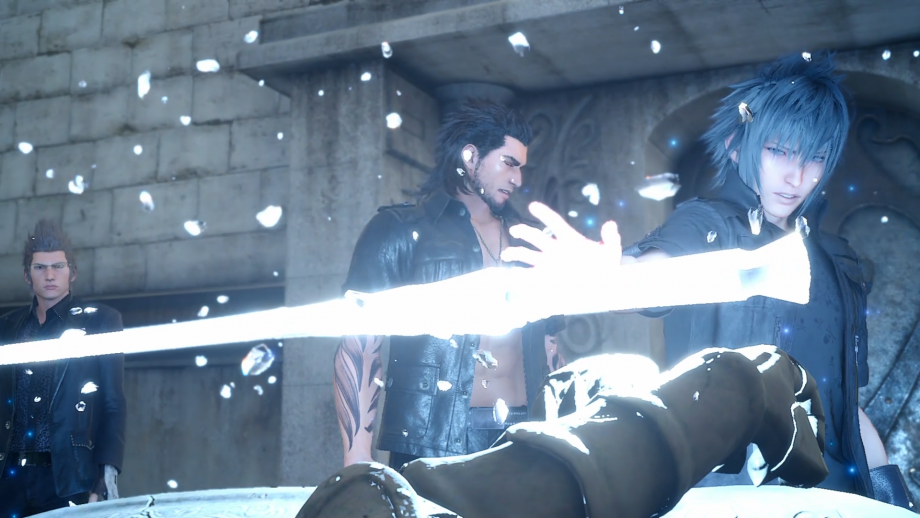
It can’t be easy being Hajime Tabata. After making his name directing the PSP-exclusive Final Fantasy spin-off, Type-0, he quickly found himself in charge of one of the most troubled development projects in the history of gaming. It didn’t help that it was one of the industry’s most eagerly anticipated titles, either.
It all started at E3 2006.
With the worldwide launch of the PlayStation 3 less than a year away, Sony began showcasing a wealth of new games for the system. One of the stand-outs was a trailer hinting at a bold new direction for Square’s beloved series – a Final Fantasy game with entirely real-time action. Final Fantasy XIII Versus was, at the time, billed as little more than an exciting new spin-off of Final Fantasy XIII, meant to live happily alongside the upcoming mainline entry.
Three years later Final Fantasy XIII came and went with Final Fantasy Versus XIII nowhere to be seen. With the game’s ambition and budget slowly spiraling out of control, Square stayed silent. Years went by and many fans assumed the project was dead. Little did they know that Square was still working behind the scenes. It wasn’t until Square Enix saw the eighth generation of consoles in 2011, however, that they made the decision to go for broke with Versus, starting again and internally rebranding the project as Final Fantasy XV.
Related: Xbox One S review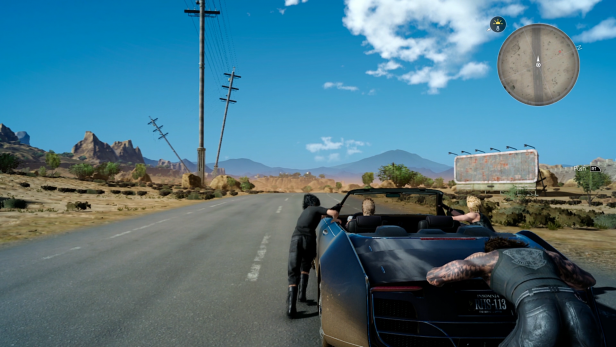
After the success of Type-0 they quickly shifted Tabata and the rest of the Type-0 team onto what is now Final Fantasy XV.
“I think because we switched over the whole nature of the project it actually made it very easy for me to work on the project from then on,’ explains Tabata. ‘If the mission I was given was to complete Versus as Versus, however, that would have been a much harder thing to do.”
Working in tandem with overall game director Tetsuya Nomura, Tabata and his team brought what they’d learned from developing the more action-focused Type-0 to the table. Unlike with Type-0’s development, however, Tabata now had to not only sculpt his first ever mainline Final Fantasy, but also live up to the expectations set by the now legendary Versus trailer – a pressure of which he was all too aware.
Yet this was no longer a spin-off. Tabata knew the team had to deliver something much, much bigger.
“We expanded the scale of the project to try and remake it, to make it the best game that XV could be,” Tabata pauses. “The kind of game that I thought we should be making.”
Tabata and Nomura looked to the past to help discover what the core concept of Final Fantasy was and to figure out what a modern Final Fantasy game should be. “Looking back through all the old games, VI was the one that really grabbed me and made me think ‘wow’.”
Related: PS4 Neo vs PS4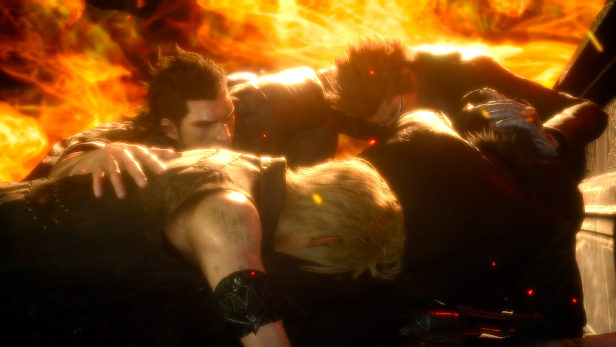
Replaying VI and other games in the series reaffirmed to Nomura and Tabata that they should focus on creating a story that felt personal and had a strong emotional resonance. “It wasn’t that we played VI and decided that it was the inspiration behind XV,” Tabata clarifies. “The idea of having that very human, very emotional tale was already decided, but I think there may have been some influence there in more of an indirect sense. From seeing VI, I got to understand the classic Final Fantasy feel. From the games previous to VII that emotional core was really what Final Fantasy was about.”
Final Fantasy games have always attempted to tell a story that tugs at the heart strings, so the idea of a strong story isn’t exactly new for the series – what is new for XV is the way they’re attempting to tell it. “The idea of exploring a massive world, the simple but very realistic joy you would get out of that – I’m trying to recreate those feelings,” Tabata explains.
“We want the player to have that feeling you get when you go to a foreign country you’ve never been to before and it’s this unknown land. That excitement about what lies around the next corner… To really simulate that and bring that into a game is something we’ve concentrated on and tried very hard to do.”
Setting the game in an open world for the first time in the series allowed them to achieve that, with Tabata and Nomura aiming to marry an emotionally resonating story with a relatable sense of adventure. But as exciting as it was for the team working on an open-world game for the first time, it presented a unique storytelling challenge.
“It’s a really different approach. Rather than having a linear progression where you have each scene with the drama and storytelling tightly packed, you’ve now got this open world you’re free to travel around, and you have to put the storytelling within the environment.”
Related: Xbox Scorpio vs PS4 Neo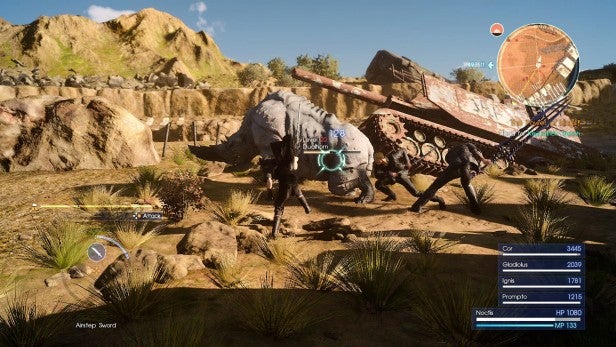
No longer having control over exactly where a player is at all times meant that every aspect of the world had to be able to contribute to the story. This was something Tabata is adamant would have been impossible without the right technology. “After attempting development on an open-world game and getting as far as we have, it’s really reinforced to me that what you need to make that a reality is good AI first of all, and just as crucially is top-level full CG rendering,” he says. “We’ve now managed to create something that we could only do with the latest generation of hardware.”
While creating not only a new type of combat system but also marrying it with an incredibly ambitious open world was a vision happily shared between Nomura and Tabata, it seemed a pretty daunting task to many of the team. “It certainly wasn’t an easy thing to get the whole team to have that courage to move ahead and try something so out of their comfort zone,” Tabata confides. And with Japan falling behind the curve when it came to tech, he explains why XV’s development process became a difficult and increasingly lengthy one.
“I think, first of all, the big reason why obviously the West did overtake Japan when it came into the HD console development era was very much because Western developers had that previous base of PC development experience and they were able to use that very effectively in the switch to the new consoles. In Japan, however, most places didn’t have that base of knowledge and experience with PC gaming, they’d just worked on different generations of consoles. So it was much harder for them to make [the transition].”
Using his experience from Type-0 HD and the team’s recent experience from Final Fantasy XIII, Tabata was determined to create the most technologically advanced and immersive Final Fantasy possible. “What I tried to do with XV was make sure that we started off development at the top levels of PC capabilities and worked towards the highest technical bar that existed. From there it was then easier to work on breaking down and adjusting the game to what each individual console could do.”
Related: Deus Ex: Mankind Divided review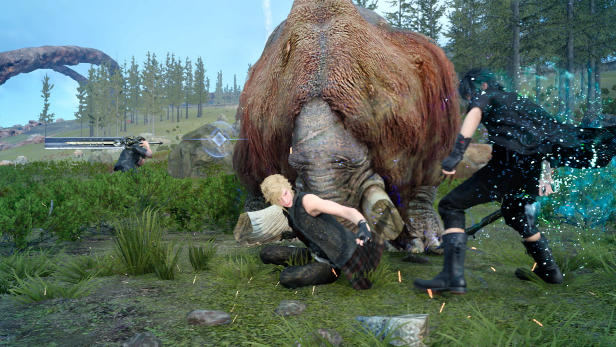
As well as the technological struggles of a new console generation and attempting to create an entirely new type of Final Fantasy, the team faced other obstacles. After the largely negative reaction to Final Fantasy XIII, the team was all too aware of the pressure to win back fans. With Nomura being moved to Kingdom Hearts III in 2014, the last two years have seen Tabata step up as director and leader. Tabata is hesitant, initially towing the party line and defending XIII, but then he replies…
“So in some ways I think those [devs] obviously did think, in their own way, that ‘Yes, with this development we have to turn that around’ and ‘We have to learn from that and work out what we did wrong’. There was probably that element for them.”
While the pressure of fan expectation was certainly felt, there was less concern with pleasing traditional Final Fantasy fans and a greater focus on creating the best game possible – starting with the combat. “We actually didn’t start off attempting to create combat that would satisfy both new and old expectations,” Tabata admits. “We only started looking at making that a reality when we were working on the balancing of the game and we started fine-tuning the combat a bit.’
“The original intention when we started out with the battle system was that, in order to have that feeling of adventure and not to break immersion, we’d have to seamlessly transition into battles and make sure the combat felt intuitive – that direct control idea.”
Related: Titanfall 2 preview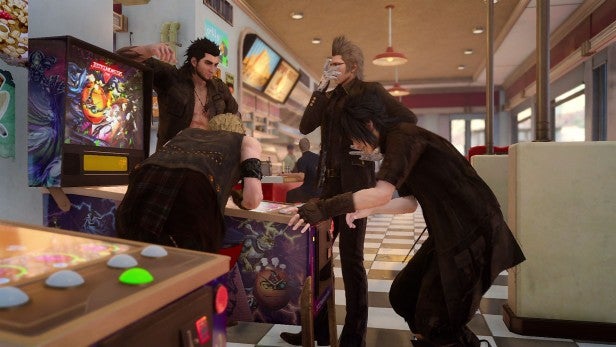
Not forgetting the lessons learned from looking at past entries, the team felt it was integral to keep one element of Final Fantasy’s combat intact – the party system. “The element of the traditional Final Fantasy games that we really wanted to recreate within that battle system was the idea of controlling a party and fighting together with comrades, so we put a lot of effort into getting that right as well.”
Yet as important as the party system is, Tabata wanted that feeling of camaraderie to be about something more. “[The party] is such an important concept for the game that we really made it the backbone of the whole design philosophy – not just within battles. The idea that wherever you are and whatever you’re doing, you’ve got that party around you and they’re all interacting with you.”
Despite such an ambitious undertaking, the ever-changing nature of Final Fantasy was what eventually helped win the team over. “I think it’s also part of the history of the series of Final Fantasy, to keep trying new things and to challenge and to keep pushing the boat out each time. Because we had that history, I think that helped people to get on board with what I was trying to do and take that step and that challenge with me.”
Yet for all the change, Tabata felt it important not to alienate old-school fans who prefer a more tactical style of combat. “It really was in the final stage of development, when we were tuning and balancing the game, we decided OK, so for the people who do prefer that old turn-based style and want to play the game at a slower pace and don’t like action games so much, we introduced the wait mode. I think because we’ve got those features in there and we’ve got that solid base to the gameplay, I think people who have only ever played turn-based games and never really played action games before will still find an interesting and exciting combat system.”
Related: Best Xbox One games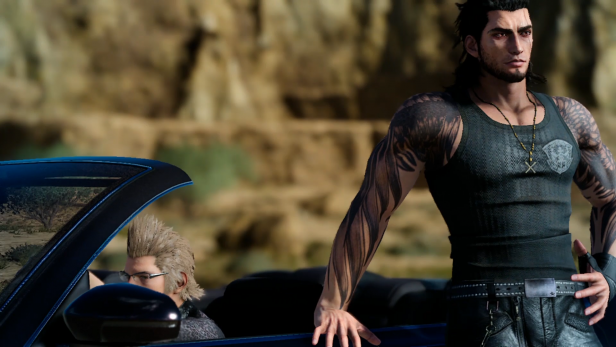
In order to grab the attention of long-standing fans, Square did things outside of the game, too. After ten years in development Square Enix tripled down on Final Fantasy XV’s universe, releasing the feature-length CG film Kingsglaive: Final Fantasy XV and the anime series Brotherhood: Final Fantasy XV. So is this what fans can come to expect from future entries in the series?
“We very much did this as a new approach, a new idea and challenge for XV, so I can’t really say if that’s going to be the future of Square Enix or not,” Tabata admits, but as producer of Kingslaive, he’s been happy with the reception it’s received. “I am feeling now, though, that it’s had a really good result and that it’s hitting what it was supposed to hit, because there are a lot of people who would otherwise have not been interested in Final Fantasy coming and checking out the game now.”
Having spent a decade in the world of Final Fantasy XV, it’s not surprising that Tabata’s involved in every aspect of it, and it sounds like there are still more stories to tell. “This isn’t going to be everything you’re going to see from XV’s universe,” Tabata teases. “There are things that haven’t been announced yet, so you’ll see more from XV.”
It remains to be seen whether Final Fantasy XV can live up to a decade of impossibly high expectations, but Tabata and co have poured their hearts into their work. When asked what his one hope is for the game he stops and smiles, “That’s a very clear objective for me: I want to create a game that means as many people as possible come to me and say, ‘Final Fantasy XV was my favourite game in the series.’”

